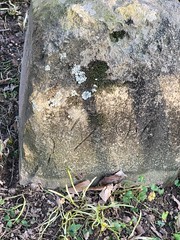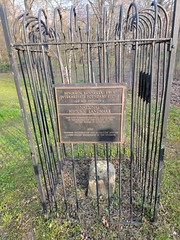Henan physician Dr. Wang Shuping, the author of the December 1995 report translated below, reviewed this translation and offered several explanatory notes which are included in brackets below. Wang Shuping is now a research worker at the University of Utah in Salt Lake City, Utah.
Health officials in Henan reacted very badly to the warning of a coming HIV epidemic spread through careless practices at the rapidly expanding and very profitable blood plasma collection center where poor peasants sold blood.
Details are in Dr. Wang Shuping’s 2012 article How I Discovered the HIV Epidemic and What Happened to Me Afterwards . An excerpt:
The leaders from the provincial Department of Health asked me, “How come you could discover AIDS while others didn’t?” I understood very well that they wanted me to keep it secret, because exposing the epidemic would botch their job evaluation as officials. Dismayed, I said, “I hope you don’t upbraid me for now. You should go visiting the 17 stations of plasma collection that are collecting blood as we speak. In these 17 stations, there are at least 500 people who are being infected by hepatitis C and HIV every day.” According to newspaper reports at the time, Henan province alone had almost 400 stations of plasma collection, and most of the blood used in hospitals came from these stations. It was impossible to know how many hospital patients had been infected with hepatitis C and HIV. A police officer got hepatitis C from transfusion he received after being wounded in a chase. He and his family were deeply upset about it.
Following that, a retired leader of the Health Bureau came to my clinical testing center telling me, “You will be in trouble if you don’t close down the center.” The next day he came with a long baton and smashed the sign of the center with it. Then, he went into the rooms to smash the equipment. I tried to block him, and he hit me with his baton. Presently a lot of people crowded around us to watch. Some pulled him back. That way I got out of danger. I called the police station immediately, and when the officers came to get him, he cried and made a scene. He screamed, “Certain leaders sent me to beat her. Now that the police came, none of them is forthcoming!”
Report on Investigation of Hepatitis Virus and HIV Infection Among Blood Donors in Our Region
English translation of Dr. Wang Shuping’s December 1995 report 我区献血员中HCV及HIV感染的调查汇报
The twentieth century’s HIV/AIDS pandemic has already begun to spread in the Zhoukou region (Note: administrative region of China’s Henan Province then included Zhoukou city,nine counties). It already affects the majority of the counties and cities in Zhoukou region. The HIV/AIDS pandemic will have a serious impact on our region’s economic development and poses a severe threat to the health of the people of Zhoukou region. This investigation report describes that status of the epidemic in Zhoukou region), the causes of its spread, and urgent measures that need to be taken.
I. Rates of Hepatitis and HIV infection in Our Region
During 1994 and 1995 we sampled for Hepatitis B infection groups of plasma-only [paid] blood donors in the Zhoukou region who underwent a process that involves centrifuging whole blood, separating out the plasma, and then transfusing the remaining blood fraction back into the blood donor. The rate of Hepatitis C infection we found ranged from 18% to 84%. We also did a screening at our plasma-only blood plasma collection station for Hepatitis C antibodies after blood plasma collection as well as before blood plasma collection and found that the rates of infection after collection were 40.1% (201/501) compared with 18.3% (82/448) before blood plasma collection.
Currently, the rate of Hepatitis C infection after giving blood is 41.2% whereas the rate of Hepatitis C virus infection among normal people the rate is 0.85%. Recently we discovered that the rate of HIV infection among blood givers was 15.1% (62/409). [Wang Shuping note: We did not find any HIV positive infection in the normal population.]
Why were infections so high among [paid] blood donors and people who receive blood transfusions? The causes of this situation are analyzed below.
II. Causes of Infection
Causes of Infection in Blood Collection Stations
- Blood collection stations are operated to make a profit so the stations want blood donors to give as much blood and as frequently as possible and they often ignore the regulations. This also makes the blood donors physical condition decline as a result. [Wang Shuping Note: The regulations allowed blood to be given no more than two times per month. ]
- The blood collection stations did not screen for HIV prior to April 1995. Some underground blood collection stations are still not screening for HIV.
- Some blood collection stations knowingly take blood from blood donors who have tested previously positive for hepatitis and still less do they do they fail to give blood givers a physical examination and blood test.
- The blood collection stations take a great deal of blood plasma from the blood givers. The remaining fraction of the blood, because the blood collection station is operating in violation of regulations, they mix up the blood and people get contaminated blood by having leftover blood from another person transfused into them.
- People come to blood plasma collection stations in our region from provinces and cities in other regions of Henan Province. Some of these people are carriers of HIV infection and so by giving blood in our region bring HIV into our region.
- A large proportion of the people who work at the blood collection stations have not had medical training so they don’t have even the most basic understanding of how disease is transmitted. This results in some workers in the blood collection stations themselves getting infected by the Hepatitis C virus.
- The blood collection stations are operated to make large profits, so the workers at the blood collection stations have been overloaded for a long time. They work too fast and to save time and work often ignore the regulations for operating a blood collection station.
- The blood donors wanted to sell more blood in order to make more money so they are economically motivated to give blood at several blood collection stations. Some even give blood at two blood collection stations in one day. Many of them eat and sleep at the blood collection station so that they can give blood once a day. It is not unusual for them to give blood after taking an oral dose of a traditional Chinese medicine often used to treat hepatitis [Wang Shuping note: to reduce the level of the alanine aminotransferase (ALT) which checks for liver damage].
- Some biological products companies are aware of, but do not observe PRC state regulations and so try to buy blood plasma that tested positive for hepatitis. They do not always do any complete testing at of all of the blood plasma before they use it to produce gamma globulin, serum albumins and other blood products. It is not yet known whether those blood products can be contaminated by the AIDS HIV virus.
- Some leaders of blood collection stations have not the faintest idea about medicine. Their goal is making a profit. For the sake of reducing their capital costs they are content to completely ignore the health of blood givers and blood collection station workers.
Cause of Infection in Hospitals and Rural Clinics
- In our region there are still some hospitals that do not test blood donors donor blood for HIV and Hepatitis C virus, and then transfuse that blood into their patients resulting in cases of infection with HIV and hepatitis virus.
- Some hospitals still do not sterilize needles, injection equipment, as well as dental equipment after each time they are used on a different patient.
- Some rural township level hospitals only sterilize their injection equipment once a day. They do not sterilize the syringes after they are used on each person. The most serious cases are rural township level hospitals and clinics that only change the needle, but not the syringe, for example when vaccinating children.
- Village health rooms do not follow safety protocols for sterilization and often only use the same injector possess only one or two glass syringes which are cleaned and boiled in water at the end of day, and only change the needle but not the syringe for each patient.
We began a study of 76 people who had just registered at the blood collection station. We found that after seven months 68.3% had become infected with the Hepatitis C virus. We conclude that since the transmission mode of the Hepatitis C virus and HIV are similar, if this situation should continue, then HIV will spread rapidly throughout our region.
In order to protect the blood donors of our region and to limit the spread of HIV and the Hepatitis virus in our region, we make the following recommendations:
III. Recommendations
- Since at present there is no effective management of blood collection stations, all blood plasma-only collection stations, including underground blood plasma collection stations, should be closed immediately. Local laws and regulations are needed to manage these stations.
- People have been giving blood to blood plasma-only blood collection stations should not be allowed to give whole blood for therapeutic use. Procedures for handling blood used therapeutically should include testing twice before using the blood.
- The organization charged with responsibility for blood oversight should be given some authority. It should regularly inspect and at times make surprise inspections to sample the quality of blood at the blood collection centers and at hospitals in order to reduce the spread of HIV and the Hepatitis C virus.
- At all blood collection centers that collect whole blood should immediately provide training to their entire staff. This training should stress medical morality education. Training should focus on specific job-related tasks and be followed by an examination. Only those who pass the examination should be employed.
- For director of a blood collection station a person should be chosen who has high professional morality, has received a standard medical education, intelligent and conscientious, behave properly, does not hatch plots, and is not overly focused on their personal advantage.
- The chemical reagents used to conduct testing at blood collection centers and at hospitals should be centrally managed to ensure that inferior reagents do not come onto the local market and affect the quality of sample test results.
- The regional blood quality oversight committee should regularly sent send people to inspect all blood collection stations and hospitals. Stations and hospitals that have permits but do not operate according to the terms of their permit, which operate in violation of regulations, which are aware of hazards to public health but choose to ignore them, or which avoid testing by collecting the blood that they use should be severely punished.
- HIV tests should be given to everyone who has ever been a plasma-blood only blood donor and to people who have had a blood transfusion since 1992, who has had many different sex contacts, or has been an intravenous drug user so that people who are currently HIV-positive can be educated about HIV/AIDS as soon as possible, so that their families can be protected, and that greater harm to society in the future can be prevented and so reduce the speed of the spread of HIV/AIDS.
- Education about HIV/AIDS should be increased. More specifically, there should be weekly articles or programs in the newspapers and on television.
- All hospitals and clinics should use only single-use needles. Transfusion equipment used at blood collection stations should undergo high temperature sterilization before being disposed of. This equipment should absolutely not be resold.
Confronted by the current epidemic of HIV infection, the most important thing is that everyone has a strong sense of urgency. If those in the medical community do not properly understand the threat that HIV poses to our region, they certainly face severe criticism in the future.
As a medical worker and as someone who has worked at an anti-epidemic station and a blood collection station, I have a relatively good and detailed understanding of the problems of blood collection stations. If we take immediate and effective action, the problems described above can be brought under control.
The analysis of the causes and the recommendations given above may have some bias. However, we have seen how the HIV infection rate in our region has been increasing at a horrifying pace. Our conscience tells us that we must urge our leaders to take prompt action in order to save the people of our region.
Zhoukou Region Clinical Testing Center
December 16, 1995
Photos of the Chinese text of this report can be found among photos on or within several photos of this Flickr link.




Pingback: Dr Gao Yaojie: In Memory of Wang Shuping 高耀洁:纪念王淑平 | 高大伟 David Cowhig's Translation Blog
Pingback: Public health whistleblower, 'Joan of Arc' of China's HIV crisis, dies in Utah - Salt Lake Tribune - Viral Things
Pingback: Public well being whistleblower, ‘Joan of Arc’ of China’s HIV disaster, dies in Utah - TRENDSKEY.COM
A whistleblower who exposed HIV and hepatitis epidemics in central China in the 19, potentially saving tens of thousands of lives, has died aged 59.
LikeLike
Pingback: 2023 BBC Chinese: Medical Corruption: Chinese Doctors and Drug Rep Confront Anti-Corruption Storm: How the PRC Healthcare System Must be Reformed | 高大伟 David Cowhig's Translation Blog